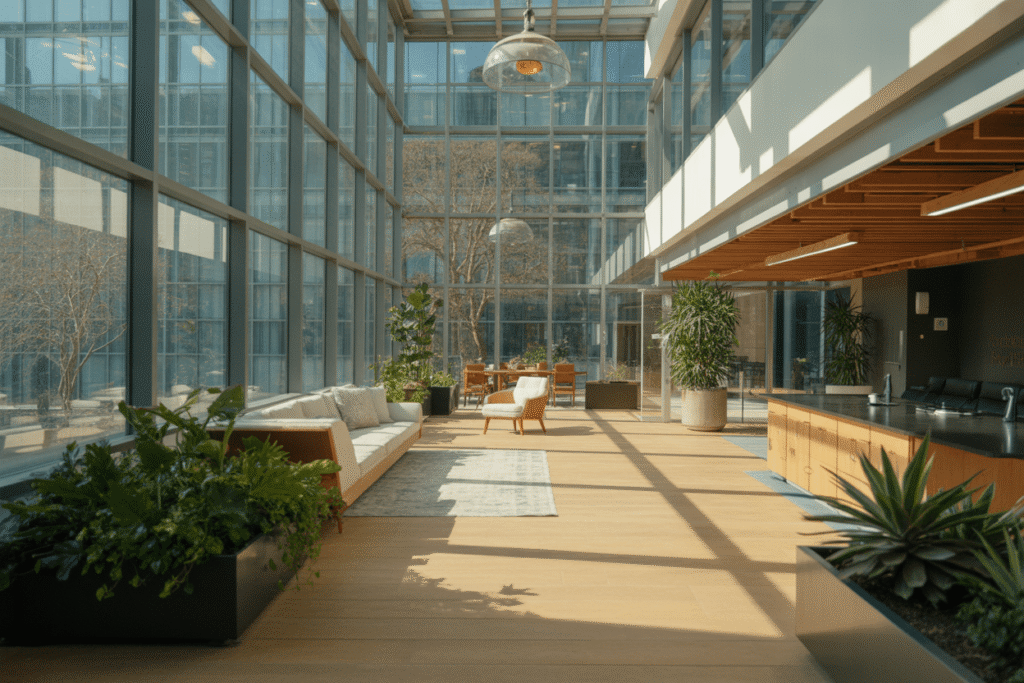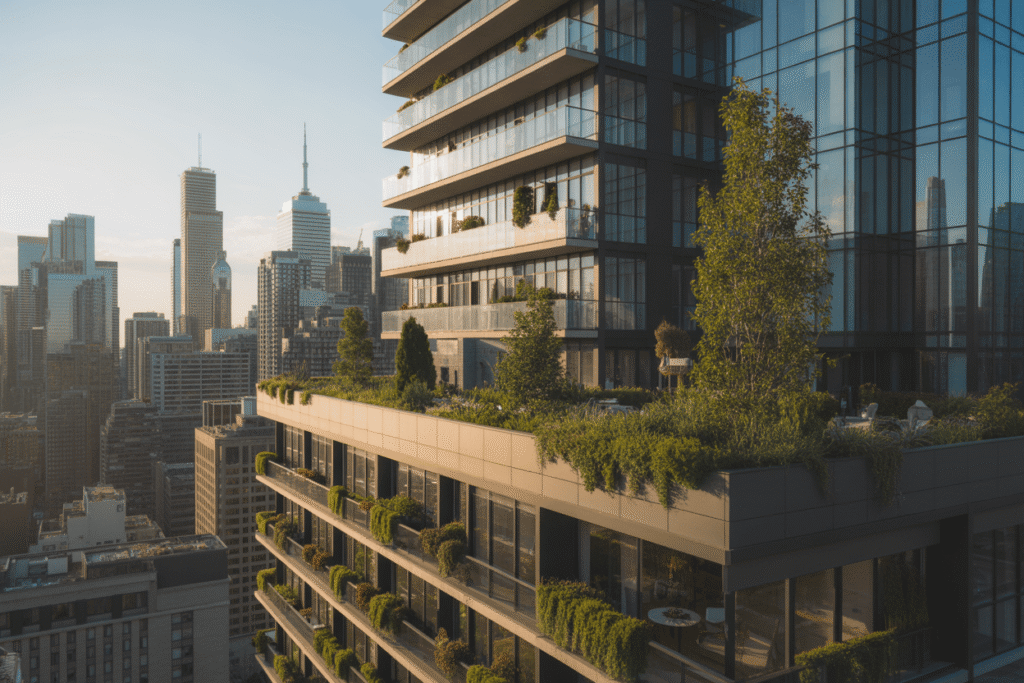Green Buildings in Toronto: How Seven Appraisal Quantifies Sustainability into Market Value


Why Green Buildings Are More Than a Trend in Toronto
Toronto’s skyline has been steadily evolving, and one of the most noticeable changes is the growing emphasis on green buildings. From LEED-certified office towers in the Financial District to energy-efficient condos along the waterfront, sustainability has shifted from being a “nice to have” to an expectation for new developments. This transformation is fueled by increasing public awareness of climate change, stricter government regulations, and investors demanding proof that properties can deliver both financial returns and environmental responsibility.
For property owners, developers, and investors, the question is no longer whether sustainability matters. The real challenge lies in understanding how to measure it and how it translates into market value. That’s where specialized appraisal firms like Seven Appraisal Inc. play a vital role, offering credible, defensible valuations that account for the financial impact of sustainability initiatives.
The Rising Demand for Sustainable Real Estate in Toronto
Toronto is one of North America’s most active real estate markets, and demand for sustainable buildings has grown rapidly. Buyers and tenants are increasingly drawn to buildings that reduce energy costs, improve indoor air quality, and demonstrate a commitment to environmental responsibility. Large institutional investors, including pension funds and REITs, often make sustainability a condition for acquisition.
The City of Toronto has also introduced policies that accelerate this shift, such as the Toronto Green Standard (TGS), which sets environmental performance requirements for new developments. Compliance with these standards not only ensures regulatory approval but also enhances long-term property competitiveness.
With these dynamics at play, sustainability directly influences value, but only if it is measured and presented with professional accuracy.
How Sustainability Creates Tangible Value in Real Estate
Sustainable design and construction elements may seem intangible at first glance, but they produce measurable benefits that impact market value. A few of the most significant factors include:
Reduced Operating Costs
Energy-efficient HVAC systems, insulation, and lighting lower utility bills for owners and tenants. In high-cost energy markets like Toronto, these savings create a direct financial advantage that increases property value.
Increased Occupancy and Tenant Retention
Green buildings often attract higher-quality tenants who are willing to pay a premium for healthier, more efficient spaces. Commercial tenants, in particular, see sustainability as part of their corporate social responsibility and branding strategy.
Enhanced Resale Value
Properties with LEED, BOMA BEST, or WELL certifications typically command higher resale prices. Buyers recognize that certified properties are future-proofed against regulatory changes and more resilient to shifting tenant demands.
Risk Mitigation
Non-sustainable buildings face higher long-term risks, from rising energy costs to obsolescence under stricter regulations. Investors and lenders value buildings with proven sustainability features as lower-risk assets.
The Challenge: Quantifying Sustainability in Market Value
While the benefits of sustainability are clear, translating them into defensible market value is complex. Traditional appraisal methods often overlook or undervalue green features because they do not always have direct comparables in the marketplace. For example, how do you isolate the premium value of a green roof, geothermal heating system, or advanced water submetering when few similar buildings exist?
This is where expertise matters. Seven Appraisal bridges the gap by combining traditional appraisal methodologies with specialized sustainability analysis. Their process accounts not only for cost savings but also for the broader financial performance of green assets over time.
Seven Appraisal’s Approach to Green Building Valuations
Data-Driven Energy and Cost Analysis
Seven Appraisal integrates energy performance data and operating expense reports into its valuations. By comparing sustainable features with baseline building performance, they calculate the actual financial advantage provided by efficiency upgrades.
Market Premium Recognition
Through in-depth market research, the firm identifies premiums that buyers and tenants pay for sustainable buildings. This may include higher lease rates in LEED-certified office towers or stronger demand for eco-friendly residential condos.
Lifecycle and Long-Term Value Assessment
Unlike conventional appraisals that focus on present market conditions, Seven Appraisal also considers how sustainability affects long-term property resilience. This includes reduced risk of depreciation, stronger compliance with evolving regulations, and potential incentives or tax credits.
Credibility and Compliance
As members of the Appraisal Institute of Canada, Seven Appraisal follows strict professional standards. Their green building valuations are designed to withstand scrutiny from lenders, investors, government agencies, and courts, ensuring that clients can rely on them for both financial and strategic decisions.
Why Expertise Matters in Toronto’s Green Market
Toronto’s property market is highly diverse. A sustainable retrofit in a 1970s high-rise in North York requires a very different valuation approach compared to a newly constructed LEED Gold office tower downtown. Without an appraisal firm experienced in this niche, property owners risk undervaluing or misrepresenting their assets.
Seven Appraisal’s strength lies in its ability to navigate these complexities. The firm understands Toronto’s local market conditions while applying national and international best practices in sustainability valuation. For developers and investors, this ensures that sustainability investments are properly recognized, not overlooked.
Green Buildings and Capital Access
Another often overlooked benefit of professional green appraisals is improved access to capital. Lenders are increasingly considering sustainability factors in underwriting decisions. A defensible appraisal that quantifies the financial value of green features can strengthen a loan application, reduce borrowing costs, and improve investor confidence.
In Toronto’s competitive investment landscape, where every percentage point matters, this can make a significant difference.
The Bigger Picture: Sustainability as a Strategic Asset
Sustainability is no longer just about reducing environmental impact. For property owners, it is a strategic asset that drives profitability, market positioning, and long-term resilience. A properly quantified appraisal ensures that this value is visible, measurable, and defensible.
Seven Appraisal Inc. helps property owners, investors, and developers make informed decisions by uncovering the true value of green initiatives. Whether you are selling a LEED-certified condo building, refinancing a commercial tower, or planning a major redevelopment, their expertise ensures that sustainability translates into financial strength.
Conclusion: Turning Green Features into Market Value
Toronto’s real estate future is undeniably green, but value recognition does not happen automatically. Without professional appraisal expertise, sustainability risks being treated as a vague marketing claim rather than a financial asset.
Smart property stakeholders partner with Seven Appraisal Inc. because they know that every efficiency upgrade, certification, and sustainable design element deserves to be quantified, not overlooked. By translating green features into tangible market value, Seven Appraisal empowers clients to maximize returns, attract premium buyers and tenants, and stay ahead in a rapidly evolving market.
